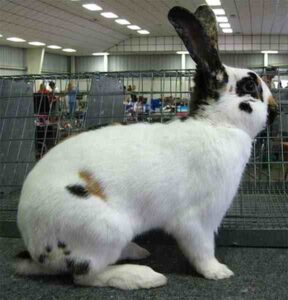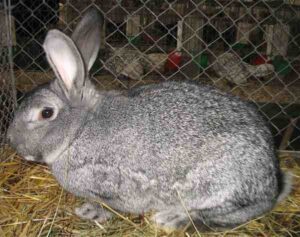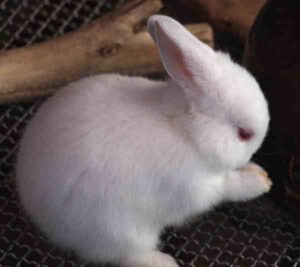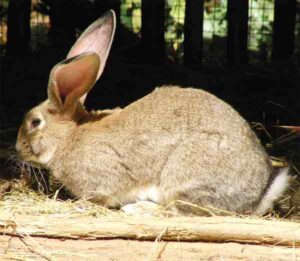Rabbit meat is one of the best source of protein and healthier than other meats. As a result commercial rabbit farming in Kenya is becoming popular day by day. Rabbit meat contain more protein and less in fat than beef, turkey, pork and even chickens meat.
For a long time, commercial rabbit farming in Kenya for meat production has not been taken seriously. But now, rabbit farmers in Kenya are now raising highly meat producing rabbits for commercial production of meat and they are earning good money by doing this business.
How to Start Rabbit Farming in Kenya
Starting rabbit farming in Kenya requires very low investment. It’s very easy to set up and raising rabbits commercially. Here we are describing the steps for starting commercial rabbit farming business in Kenya.
Step 1: Learn Practically
First of all, try to learn practically about this business from an experienced farmer. Having practical knowledge is very important in commercial rabbit farming business. So, try to learn practically about this business before starting.
Step 2: Complete a Training
Completing a training is also beneficial for starting and operating this business. So, try to complete a rabbit farming training before starting. Many government organizations, colleges and universities available to learn practically.
Step 3: Make A Business Plan
Making a good and effective business plan is also very important for running a business smoothly. So, make an effective business plan and try to work according to the plan. Try to include everything in your business plan from starting to caring and marketing. You can ask for help from an expert for making the business plan, especially if you are a beginner.
Step 4: Select a Good Location
Selecting a good location for your farm is also very important. Try to select a calm and peaceful area for your rabbit farm. It will be better if you can make the farm far from residential area.
Step 5: Select The Right Rabbit Breed
Choosing suitable breeds for commercial rabbit farming in Kenya is most important. The common rabbit breeds used for commercial production in Kenya are California White, Flemish Giant, New Zealand White and some other local cross breeds. All those breeds are suitable for commercial production according to the environment and climate of Kenya. Choose breeds according to your desired production.

Step 6: Purchase Equipment
Like other livestock farming business, commercial rabbit farming also require some equipment. So, purchase the required equipment for starting and operating this business successfully. Some essential rabbit farming equipment are:
- Hutches or cages
- Feeders
- Waterers
- Nest boxes
- Grooming tools
- Medical kit
- Rabbitry tools
- Litter trays or pans
- Hay racks
- Lighting
- Ventilation
- Record keeping tools
Step 7: Purchase Rabbits
Purchasing good quality, healthy and active rabbits is also very important. You can purchase rabbits from any of your nearest farmers or breeders. Always try to purchase good quality and healthy rabbits for your farm. You can ask for help for purchasing rabbits if you are a beginner.
Step 8: Ensure Good Housing System
Making suitable rabbit housing is the most important part for rabbit farming in Kenya. Rabbits are very clean animal. They love to stay in neat and clean house with good ventilation system.
You can raise rabbits in both deep litter and cage methods. Choose the method according to your production type and investment capability.

Some important factors to consider which constructing house for commercial rabbit farming in Kenya are described below.
- Depending on the breeds, various breeds vary in their weight. Generally, an adult rabbit weights between 2-7 kg. And for commercial production 1200-1500 squire centimeter clean space is required for 1 kg weight. That means 80cm * 80cm space is required for a medium sized rabbit.
- Doe needs extra space for proper growth. 80cm * 115cm space is perfect for an adult medium sized doe.
- Keep the kids or young rabbits in a group until they reach 4 months of age. 20-30 young rabbits can be kept in each group.
- Proper ventilation system in the house is very essential. You can cover the walls, doors, roofs of a hutch with chicken wire netting or made up of bamboo or wood placed 20mm apart. This system is suitable for hot tempered areas.
- In cold tempered areas, you can easily make a house with solid wall and roof.
- Make a drain inside the house so that you can easily clean the house.
- Clean the feeding and watering equipment inside the house on a regular basis.
Step 9: Provide Nutritious Feeding
Sufficient amount of nutritious and balanced diet food keeps the rabbit healthy and productive. For commercial production, you can feed your rabbits commercially prepared supplementary feed. This type of foods are available in the market. Along with this you can add kitchen garbage, grasses, leaves of various trees etc. This will help you reducing feeding costs. Sufficient amount of clean and fresh water is also required with proper nutritious rabbit feed.

Step 10: Proper Breeding Management is Important
Rabbit grows very fast and gain maturity earlier. They become suitable for breeding within their 6 months of age. The gestation period of rabbit is less compared to other livestock animals. Generally, a doe give birth of kids after every two months. Each time one doe can give birth of 2-8 kids. Gestation period stays for 28-31 days.
Step 11: Care & Management
Take some extra care and management to your rabbits. Vaccinate them timely to keep free from all types of rabbit diseases. Never feed them polluted or expired food. Try to monitor all their activities.
Step 12: Marketing
Marketing process is most important part of rabbit farming in Kenya. Basically, there are no formal markets for selling rabbit products so far like chickens, goats or fish. But rabbit meat slaughter houses are coming up due to the high popularity and increasing demands of rabbit meat. Right now you can try the local market, restaurants and supermarkets.
Rabbit meat has a huge demand in China and some other countries. So, if you have sufficient facilities then try to export to foreign countries. Every business goes with some problems. Don’t fear about marketing your products. Formal markets are not available right now. But the rabbit meat popularity and consuming rate is increasing rapidly. And a suitable market place is coming up soon. So, for earning some extra income, start commercial rabbit farming in Kenya.

These are the steps for starting and operating a successful rabbit farming business in Kenya. Hope this guide has helped you. Good luck & may God bless you!
Frequently Asked Questions (FAQs)
People ask many questions about rabbit farming in Kenya. Here we are trying to list the most common questions about raising and breeding rabbits in Kenya, and trying to answer them. Hope you will find your answer. Don’t hesitate to ask us if you have more questions.
Is rabbit farming profitable in Kenya?
Yes, commercial rabbit farming is a profitable business in Kenya. Commercial rabbit production requires less investment, but the profits are much higher than many other livestock farming business. Although, you have to set your marketing strategies before starting this business. Because your production will not be profitable if you can’t sell your products well.
How much does it cost to start a rabbit farm in Kenya?
A rabbit breeder locally cost between Kshs. 3,000-6,000 and the average number of rabbit bunnies per mother is 3-8 every two months.
Where can I sell rabbit urine in Kenya?
You can contact with the buyers listed here for selling your rabbit urine.
1. Alcare Group
Location: Kanyariri-Gitaru Road, Gitaru
Phone 1: 0725 893 963
Phone 2: 0718 784 649
2. Aqua Farm Consultants
Location: Standard Building, 6th Floor, Nairobi
Phone: 0720 586 990
3. Rabbit Breeders Association Of Kenya
Location: Township Kenyatta Hwy, Thika Livestock Offices, Nyeri Town
Phone: 0721 219 092
4. Rabbit Urine Extra
Phone: 0775 591 851
5. Rabbit Consortium Limited
Location: Dagoretti, Kabiro Kabiro, Dagoreti North, Nairobi
Phone: 0725 600 710
6. Rabbit Republic Limited
Location: Standard Building, Wabera Street, Nairobi
Phone: 0720 586 990
Is there market for rabbits in Kenya?
Yes, the market is huge. But you have to contact the right person for selling your rabbits. You can directly contact with some hotels in Nairobi for selling rabbits in large numbers.
What are the benefits of rabbit farming in Kenya?
There are several benefits of commercial rabbit farming in Kenya. The main benefits of rabbit farming business in Kenya are:
Rabbits are very fast growing animals like broiler chicken. They gain maturity fast and become suitable for slaughtering purpose within 4-5 months.
Rabbit gestation period is less (generally between 28-31 days) and a doe give birth of kids after every 2 months. Each time one doe can give birth of 2-8 kids.
Starting rabbit farming in Kenya requires very little capital or investment. Even, you can start rabbit farming business in a well ventilated small space.
Food to meat converting rate is higher on rabbit than any other livestock animals.
Rabbit meat is very tasty and nutritious. All types and all aged people can easily consume and digest rabbit meat.
Feeding costs for commercial rabbit farming in Kenya is also very less. You can easily feed your rabbits kitchen wast materials, grasses, plant leaves etc. with their regular commercial feed. This will help you for reducing feeding cost.
Commercial rabbit farming in Kenya can be great source of income and employment. You can successfully use your family labor for rabbit farming business. Rabbit farming is also very pleasuring and entertaining.
Can you raise rabbits with chickens in Kenya?
Yes, sure! You can raise rabbits with your chickens. But try to make a separate space for your rabbits within the chicken house.
How much does a rabbit cost in Kenya?
Average cost of a mature rabbit is between Kshs. 1000 and Kshs. 1500. And a baby or small rabbit of 1-2 months of age will cost you around Kshs. 300 to Kshs. 500.
How much is a kilo of rabbit meat in Kenya?
You can expect the price around Kshs. 500 per kg.
Is there demand for rabbit meat in Kenya?
Yes, and the demand is increasing gradually. You can target selling your rabbits directly to some hotels in Nairobi for more profits. Rabbit buyers in Kenya have improved the market for rabbit meat and other rabbit products.
How many rabbits do you need to make money?
Having around or up to 20 breeding pair will be enough for making good money yearly.
Where can I sell rabbit meat in Nairobi?
You can target hotels and rabbit butcheries first and then schools, and open markets.
How much is rabbit urine per liter in Kenya?
Pure rabbit urine for organically raised crops Kshs. 100 per liter.
What do Kenyan rabbits eat?
For commercial production, you should feed your rabbits with commercial rabbit feed. Along with this you can also feed them pellets and hay, grass, potatoes, fruits, vegetables etc.
How much is rabbit pellets in Kenya?
On average, the cost of rabbit pellets is between Kshs. 90 to Kshs. 150. Please visit the store directly to know the current price of rabbit pellets.







need training and setup to start rabbit farming
I need to get the Training on Rabbits Farming very much.
Good ideas for rabbit rearing…Im a rabbit farmer.help me find where to sell them.
I would like to join rabbit keeping assit plz
0723054776
Am really interested in this🐇🐇
Where can I sell my rabbits?0720589365
Need training on rabbits farming.
Please contact with any existing farmer in your area. Good luck!